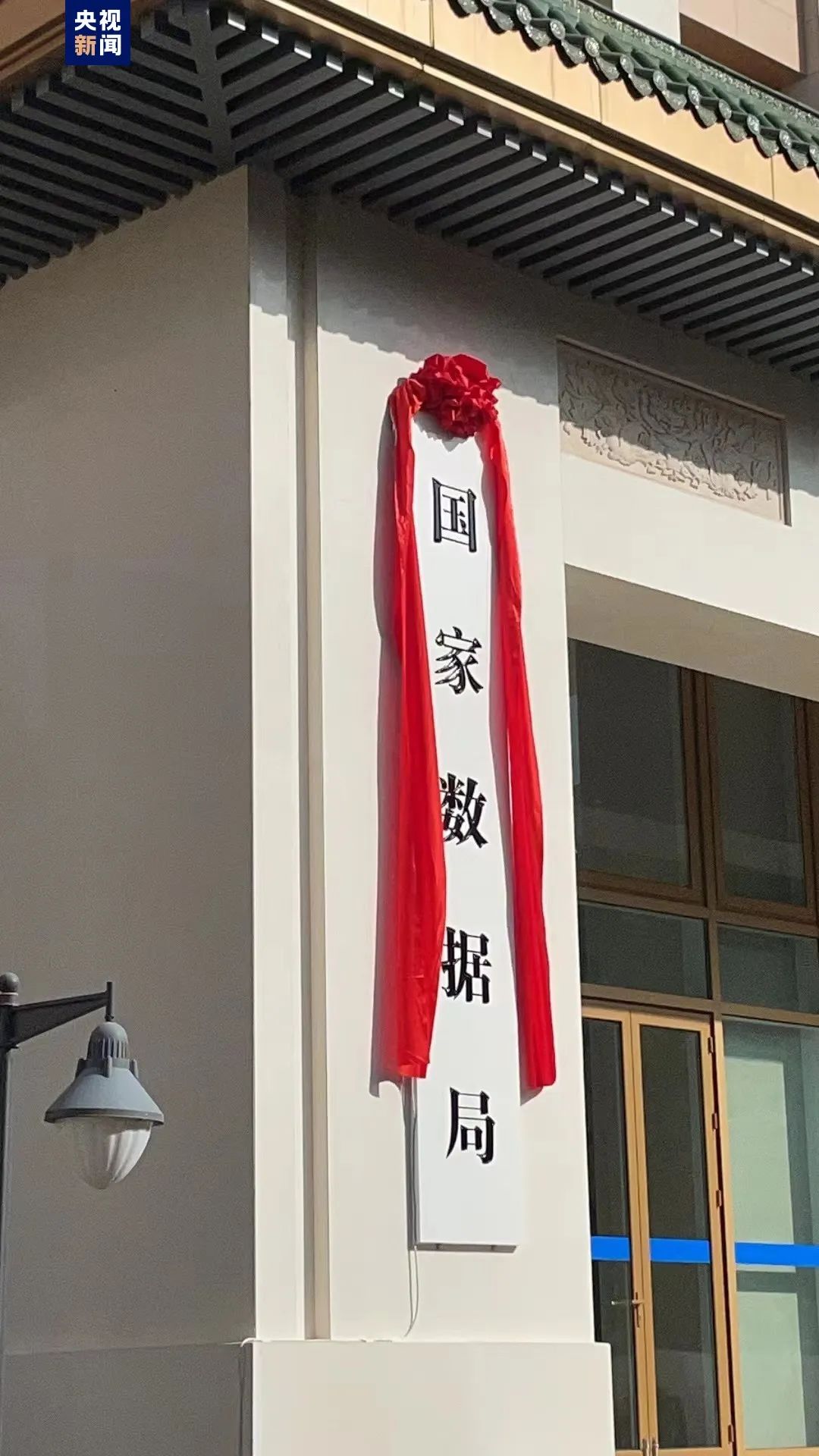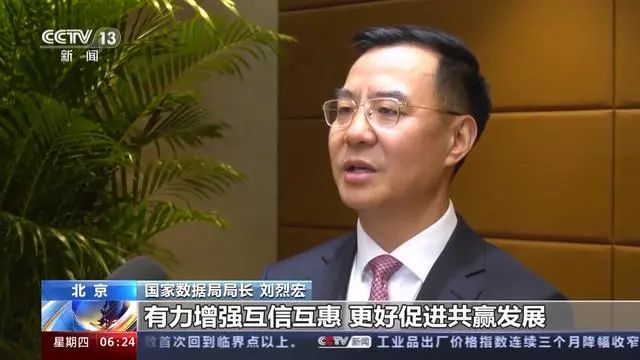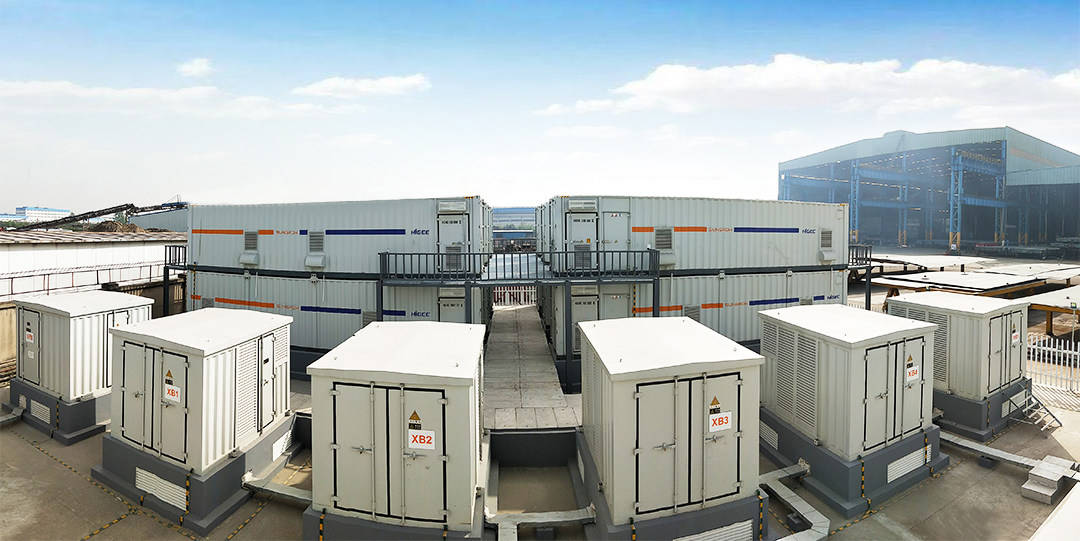【Metaverse News】The National Data Bureau officially unveiled! Policies in basic fields such as data trading may accelerate their progress

On the morning of October 25th, the National Data Administration officially unveiled its website.
The National Data Administration is responsible for coordinating and promoting the construction of data infrastructure, coordinating the integration, sharing, and development of data resources, and promoting the planning and construction of digital China, digital economy, and digital society. It is managed by the National Development and Reform Commission.
The highly anticipated National Data Bureau will be officially listed on! With the continuous improvement of the organizational structure and personnel allocation of the National Data Bureau, the policy-making process in basic areas such as public data operation, data rights registration, and data trading may accelerate.
It is understood that the National Data Bureau in the preparatory stage is divided into five groups based on comprehensive, data elements, digital economy, infrastructure, and public data work. After the National Data Bureau is officially listed, it may be upgraded to a management department in related fields in the future.
01 National Data Bureau Review
Since March of this year, the State Council issued the "Party and State Institutional Reform Plan" and proposed the establishment of the National Data Bureau, the establishment of the National Data Bureau has been in full swing.
On July 28th, the State Council appointed Liu Liehong as the Director of the National Data Administration; On October 11th, the newly established National Data Bureau welcomed the appointment of key personnel and announced Shen Zhulin as Deputy Director, marking the accelerated formation of the main leadership team of the National Data Bureau.
On October 13th, the "2024 Recruitment Guidelines for Civil Servants in Central Organs and Their Directly Affiliated Institutions" showed that the National Data Administration has released multiple positions, mainly including engaging in data governance and development policy research, participating in major strategies, plans, reforms, and activities; Engaged in data resource management and development and utilization promotion; Participate in the research and formulation of development strategies, plans, and policies related to the digital economy, coordinate the promotion of digital industrialization and industrial digitization, undertake relevant comprehensive management work, and highly match the responsibilities of the National Data Bureau.
In addition, two other positions will be involved in the promotion and demonstration of technology applications in the data field, infrastructure planning and construction, and other related work. Each position requires experience in artificial intelligence research, practical experience, and cryptography research.
02 Emphasis on Strengthening the Construction of Digital China
Zhang Ke, Associate Professor of the Public Management Teaching and Research Department of the Central Party School of the Communist Party of China (National School of Administration), recently wrote an article pointing out that the focus of the National Data Bureau's responsibility is not on micro management matters such as data security supervision, but on strengthening strategic planning and overall coordination for the construction of a digital China. In terms of institutional setting, the institutional specifications of the National Data Bureau highlight the reform goal of driving development through the digital economy.
The implementation and promotion of current important work such as improving consumption in the digital economy field.

Xie Bofeng pointed out that according to the overall arrangement of the new round of institutional reform, the National Data Administration is responsible for coordinating and promoting the construction of data infrastructure, coordinating the integration, sharing, and development of data resources, and promoting the planning and construction of digital China, digital economy, and digital society. This arrangement meets the urgent need for comprehensive strengthening of data governance and promoting high-quality development in the new development stage.
To achieve high-quality data governance, it is necessary to improve the institutional mechanisms of data governance and optimize the division of labor and collaboration between different levels and departments. On the one hand, optimizing data governance institutions is a requirement and embodiment of high-quality data governance at the organizational level. The formation of governance institutions with clear horizontal and vertical responsibilities and clear division of labor is a symbol of the professionalization of data governance towards a high-level and mature stage.
On the other hand, in the specific process of optimizing data governance institutions, the division of responsibilities, positioning of positions and staffing, and establishment of rules and regulations are important measures to implement high-quality data governance. Through the optimization and integration of governance institutions, the scientific rationality and operability of corresponding functional division of labor and cooperation are verified, and the respective work priorities of institutions involved in data overall management are further clarified, forming an organic system where each performs its own duties and cooperates with each other.
At present, two leaders from the National Data Bureau have made appearances. The first director, Liu Liehong, was previously the Party Secretary and Chairman of China Unicom, and the deputy director, Shen Zhulin, was previously the Director of the High Technology Department of the National Development and Reform Commission.
Liu Liehong, the first director of the National Bureau of Data, said recently at the third "the Belt and Road" International Cooperation Summit Forum High level Forum on Digital Economy that the release of the "the Belt and Road" Initiative on International Cooperation in Digital Economy in Beijing has set up a new platform for international exchanges and cooperation in the digital economy, effectively enhancing mutual trust and mutual benefit, and better promoting win-win development.
Liu Liehong pointed out that "promoting integrated development" will be one of the key points for international cooperation in the digital economy in the next step. Deepen cooperation in digital technology innovation, digital transformation, and digital city construction, and collaborate to promote the digital transformation of agriculture, manufacturing, and service industries, enabling more countries to achieve industrial upgrading and release development momentum through the development of the digital economy.
The cooperation areas not only include infrastructure construction such as information communication and cloud computing, but also include digital technology application projects in various fields such as healthcare, power, and railways.
 中文
中文
 English
English




